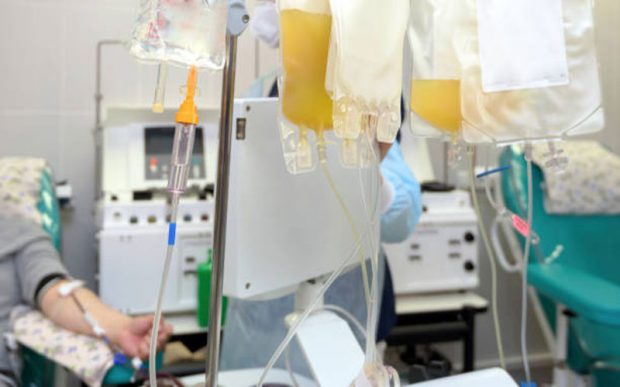
Man with acute liver ailment undergoes plasma exchange at Delhi hospital
PTI, Dec 18, 2022, 7:47 PM IST

Representational Image by iStock
New Delhi: A 52-year-old man suffering from an acute liver ailment received a new lease of life after undergoing plasma exchange at a hospital here, doctors said on Sunday.
The patient was admitted after experiencing symptoms of jaundice for two weeks, followed by altered consciousness. He had further developed ascites (accumulation of fluid in the abdomen) and decreased urine output (acute kidney injury), the Sir Ganga Ram Hospital (SGRH) said in a statement.
“On further investigations, he was detected hepatitis B virus positive, and a diagnosis of acute-on-chronic liver failure (ACLF) secondary to hepatitis B virus reactivation was made,” it said.
Dialysis was considered and the patient was given the option of liver transplant as his parameters indicated a 50 per cent chance of survival for a month, it added.
Dr Piyush Ranjan, senior consultant, Department of Gastroenterology at the SGRH, said, “As there was no donor in the family, we offered an unusual option of plasma exchange (PLEX). We did a total of five sessions of PLEX for him. After the second session, his jaundice started improving, his consciousness improved and renal functions also started improving.” “He was continued on other medical therapy of which the most important is anti-viral therapy. Patient was discharged after 20 days of hospitalisation in a stable condition and (after) one month of follow up, his ascites (water in stomach) completely resolved and jaundice had normalised,” the doctor said.
Plasmapheresis is increasingly being used as a bridge for liver transplant and in many cases, a large proportion of these patients may recover by controlling other factors, doctors said.
In this patient’s case, treatment of hepatitis B virus with medication was continued. So in this situation, PLEX acted as a support to the failing liver, they said.
PLEX is a procedure like hemodialysis in which the blood is removed from the patient and the cellular components (RBC, WBC and platelet) are separated from the plasma by centrifugation in the machine. The plasma is discarded and fresh plasma (FFP) and albumin are mixed along with the cellular components and returned to the patient, the statement said.
“The plasma contains a lot of toxic products. Since in PLEX, entire plasma is removed so all the toxic products are removed as compared to dialysis and MARS where the removal is limited by the pore size,” it said.
Udayavani is now on Telegram. Click here to join our channel and stay updated with the latest news.
Top News

Related Articles More

People single all their lives might have low life satisfaction: Study

Drinking tea, coffee linked to lower risk of head and neck cancer: Study

Study shows how brain chemicals control eating, could help develop improved obesity drugs

‘Faster walkers’ had significantly lower risk of diabetes, hypertension: Study

World Meditation Day 2024: Celebrating inner peace and well-being
MUST WATCH
Latest Additions

Udupi: Bruhat Geetotsava concludes at Sri Krishna Matha

Space for Manmohan Singh’s memorial, Congress playing ‘cheap politics’: Nadda

Middleman held in connection with bribery case involving ED official: CBI

2 detained under PSA, PIT-NDPS Act in J&K’s Samba, Jammu

PM Modi calls Gukesh an embodiment of calmness and humility
Thanks for visiting Udayavani
You seem to have an Ad Blocker on.
To continue reading, please turn it off or whitelist Udayavani.


















